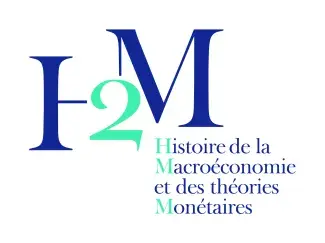
"Coding the Frontier: Digital Gold or the Unknown History of Bitcoin" séminaire le 4 avril, ouvert à tous autour de Romain Plassard (Dauphine)
Romain PLASSARD, Université Paris Dauphine - PSL, LEDA intervient dans le cadre du séminaire H2M de PHARe sur "Coding the Frontier: Digital Gold or the Unknown History of Bitcoin"
Vendredi 4 avril 2025 à La Maison des Sciences Economiques (106-112 boulevard de l'hôpital, 75013 Paris, Métro Campo-Formio) de 17h30 à 19h / salle des thèses (6ème étage
Abstract: Under what conditions did Bitcoin (Nakamoto, 2008) emerge? My article explores this question by tracing the unknown history of Digital Gold, a Bitcoin-like payment system conceptualized in 1993 by Hadon Nash, then a computer science student at George Mason University. I show that Nash designed Digital Gold out of an interest in how digital technology could transform society and saw himself as a cyberspace pioneer, akin to the 49ers of the California Gold Rush. This perspective helps explain both the goal (establishing anarcho-capitalism on the World Wide Web) and the design (e.g., rules for issuing digital gold coins) of Nash’s payment system. I also show that Nakamoto likely shared Nash’s political goal and was influenced by the new frontier myth, challenging the common view that, following Friedrich Hayek and Ludwig von Mises, Nakamoto designed Bitcoin to prevent Central Banks from generating inflation and economic fluctuations. Therefore, rather than framing Bitcoin within debates on money and finance, my article situates it within a broader reflection on technology and society. [Note : l'intervention se fera en français]
Lien Zoom : https://pantheonsorbonne.zoom.us/j/96675945961?pwd=unGAHq3YF4hFPqOH603bxrFbEaKxY5.1
Comité d'organisation du séminaire H2M de PHARE
Matthieu Renault (Université Paris 1, PHARE)
Pierre-Hernan Rojas (Institut Catholique de Paris)
Goulven Rubin (Université Paris 1, PHARE)
Aurélien Saïdi (Université Paris Nanterre, EconomiX)
Sofia Valeonti (The American University of Paris)